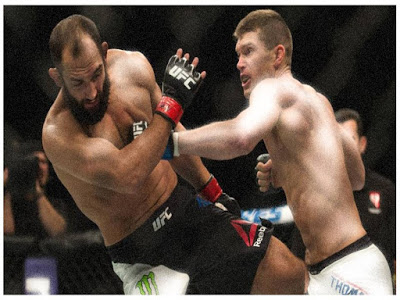This article will look at why physical aggression is so prevalent in men from an evolutionary perspective. Understanding the evolutionary benefits of aggression for men may provide insights into what circumstances trigger such behavior.
But first, consider the following scenario:
The boy was just fourteen and he had blood smeared all over the front of his school uniform shirt. He had beaten up a classmate who had bled from his nose. An eerie silence filled the scene as the badly beaten boy was helped to the washroom by some other students who’d been witnessing the fight.
Jim glanced at the blood on his shirt, half-proud, and half-sad at what he had done.
Evolutionary benefits of aggression
Many people have this rosy idea that nature is a peaceful garden buzzing with flora and fauna living in harmony with each other and that man, if he’s uncorrupted by evil, will return to his true nature of divine love that imbues all life.
Nothing could be further from the truth. The truth is that violence is everywhere in nature. Every nook and cranny of the earth is filled with critters tumbling and turning over each other, killing and devouring each other in their struggle for existence and reproduction.
From the Venus flytrap flapping its leaves to trap an unsuspecting insect to a cheetah chasing down and hunting a deer, violence is the name of the game when it comes to nature.
Humans are no different. A cursory reading of history will tell you that the amount of violence that humans have engaged in brings what you see on Discovery and National Geographic to shame.
The reason why the psychological mechanisms of violence and aggression are prevalent in nature is that they have important evolutionary advantages:
Getting resources
After that fight, everyone in the school feared Jim. When he asked for favors from his classmates, they rarely denied it. He bullied his classmates into giving him their lunch, money, and belongings.
Resources are the keys to survival and reproduction. Humans acquire resources through work, stealing, trickery, or aggression. This is why, when you open any history textbook, all you read about are conquests, invasions, and battles.
Since gaining resources boost the chance of their reproductive success, males are especially driven to seek and acquire resources.
Defense
Jim’s aggressive nature deterred potential attackers who could have gone after what he had. Since no one could bully him, he was able to guard his own resources. He formed a gang with a bunch of other boys to ensure that nobody could overpower them.
When you obtain resources, the next important step is to ensure that you don’t lose them to your competitors. Violence and aggression over resources have been the primary source of conflict between family members, spouses, and even nations.
Individuals and groups of people that are able to guard their resources are more likely to survive and reproduce.
Intrasexual competition
Jim, thanks to his evolutionarily advantageous traits, received attention from a lot of girls. He and his gang engaged in a lot of fights over girls. If any gang member liked a girl, then an outsider who hit on that girl was threatened and thrashed.
To increase the chances of one’s own reproductive success, intra-sexual competition has to be reduced. By developing a reputation for aggressive behavior, a male is less likely to face competition from other males for females.
Status and power hierarchy
Ever since Jim had that fight, he was not only feared but also respected and admired. He had attained a high status among his peers. Many of his classmates looked up to him and wanted to be like him. They copied his hairstyle, manner of speaking, and walking.
Human males, like male chimpanzees, form coalitions to achieve dominance and power. The more aggressive the members of an alliance, the more dominant they’re likely to be.
Watch how these male chimpanzees reject a young male who tries to join them in order to raise its status:
Men, right from their teenage years, are sensitive to any changes in the power hierarchy in their societies. In teenage, they talk about the fights that broke out in the school playground and who thrashed whom, and, as adults, they actively talk about politics and how one country invaded the other.
Aggressors have always been admired by males because the trait of aggressiveness is evolutionarily advantageous for males. Sports are another way by which people, especially men, gauge who’s the most powerful amongst them.
Just as early hunter-gatherer societies admired men who risked their lives and went on dangerous hunting expeditions, modern societies admire and reward the ‘brave soldiers’ and ‘competitive sportsmen’ with medals and trophies.

This is the reason why men are so passionate about sports. They identify themselves with their favorite sportsmen and see them as role models. Any character, fictional or real, who’s dominant and aggressive is admired by men.
Real examples would include characters like Alexander, Ghengis Khan, and Hannibal while fictional would include the “heroes” in superhero and action movies that are disproportionately viewed by more men than women.
